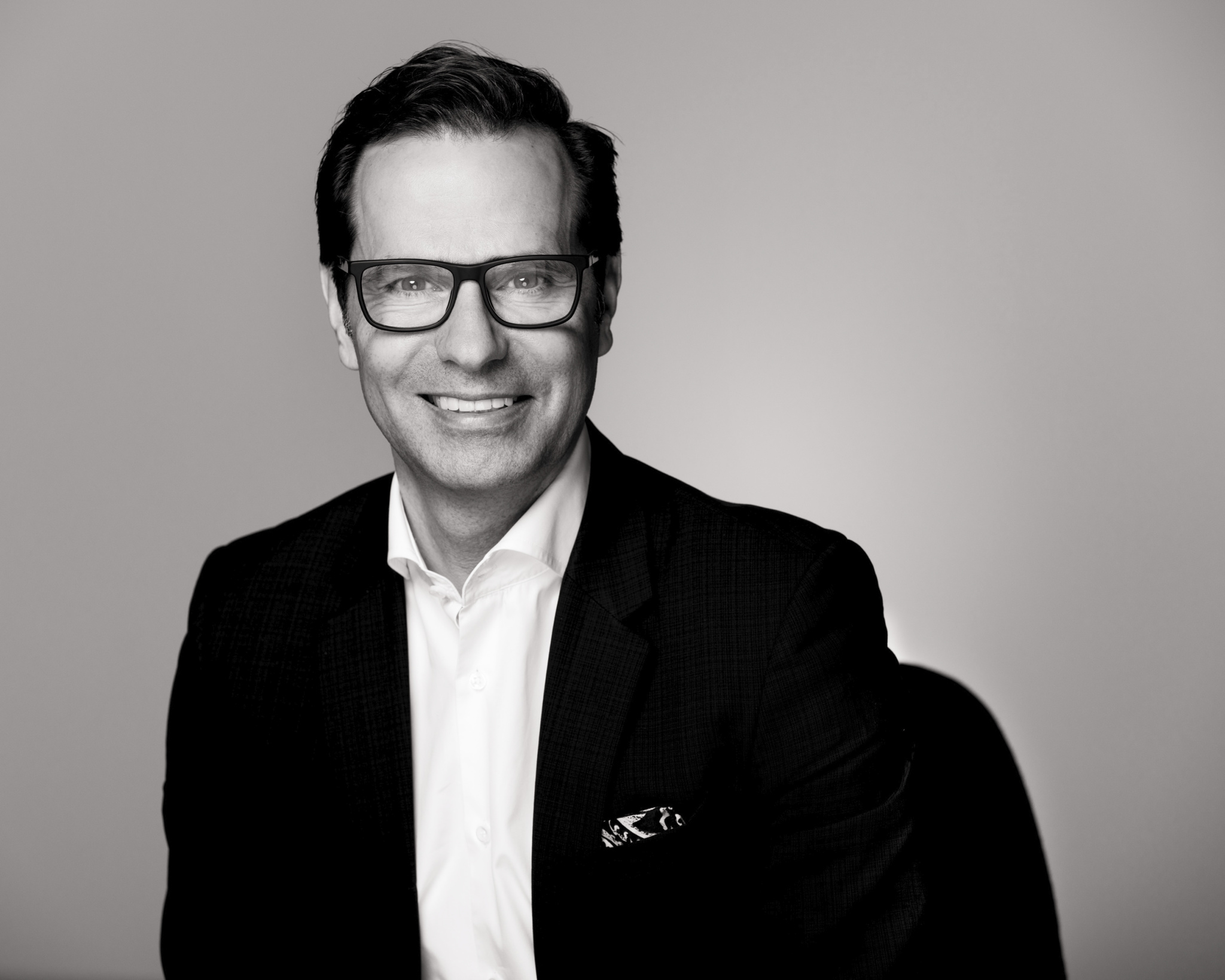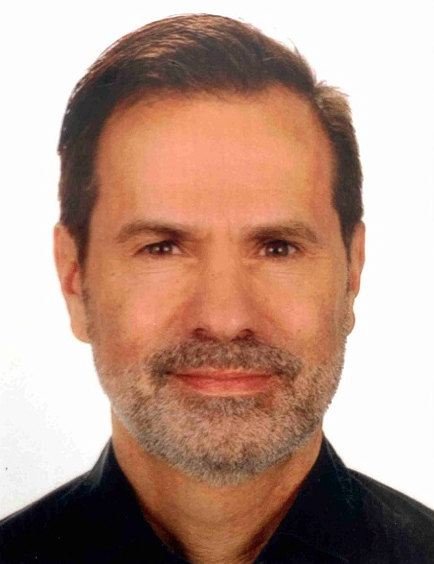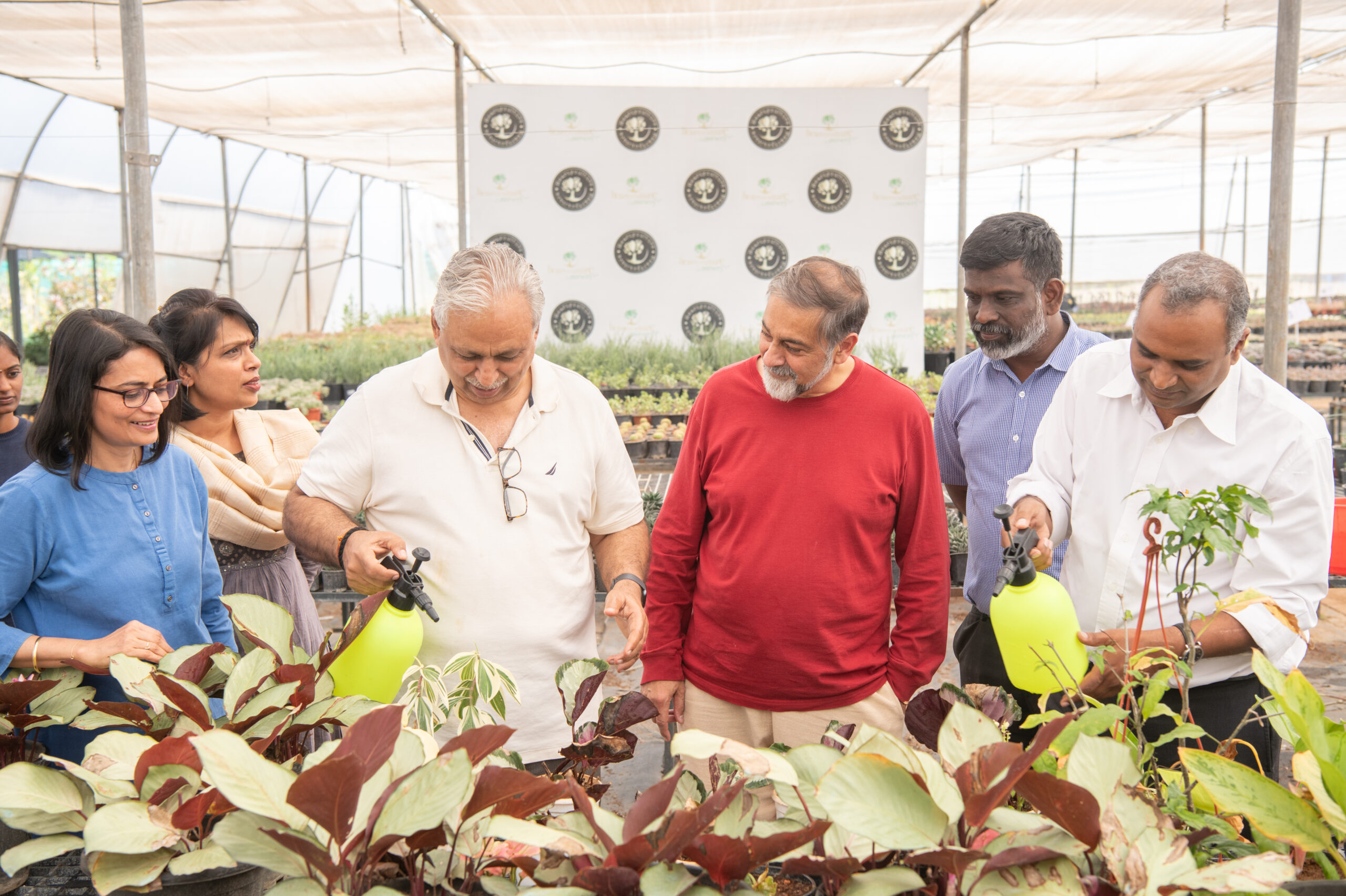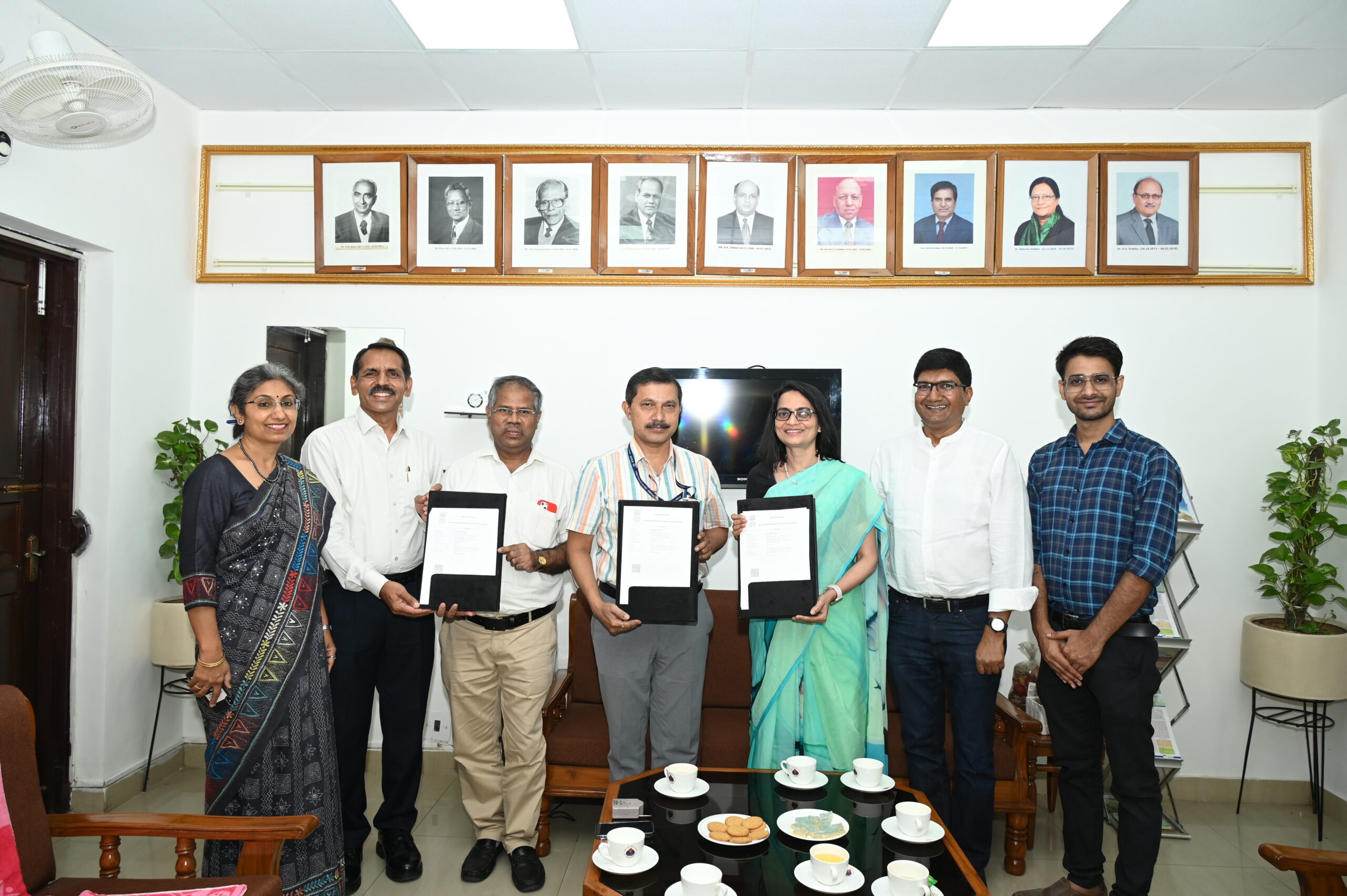In many parts of the United States, there is a crisis of people having limited reliable access to a sufficient quantity of affordable, nutritious food. As prices rise, this problem will likely become more acute. How can this problem be solved? Who are the leaders helping to address this crisis?
In this interview series, we are talking to leaders who are helping to address the increasing problem of food insecurity who can share the initiatives they are leading to address and solve this problem.
As a part of this series, we had the pleasure of interviewing Robert Hardt.
Robert Hardt, CEO of Plasma Waters, is a proven and dedicated leader passionate about innovation and about making teams and people successful. Until October 2020 Robert was General Partner at Next47, the venture capital company backed by Siemens AG, headquartered in Palo Alto, CA USA and Munich, Germany. From 2012 to 2017 Robert served as President and CEO of Siemens Canada Limited and oversaw the overall strategic management, direction and leadership for all activities of Siemens in Canada.
Thank you so much for doing this with us! Before we dig in, our readers would like to get to know you a bit more. Can you tell us a bit about your “backstory”? What led you to this particular career path?
Iwas always interested in technology and the impact technology can have on people. From a young age, I would experiment building things in workshops. My family has a mining background in Germany, and as I got older, I also joined the mining industry as an apprentice in a German coal mine. For me, that was the first step. After the apprenticeship, I went to university and studied electrical engineering because I wanted to engineer things and design things and learn how things are built, particularly big machines and mining machines.
After I finished my studies, I joined Siemens AG, which gave me the vast opportunity to work with different technologies and electrical engineering, automation, computer science and apply it to different industries. That was the start of my real professional career as an engineer. I never thought about a management career. I just wanted to become a very good engineer, but as you get assigned to bigger projects, you have to manage teams and then your career starts advancing in management. I received great support from my bosses and mentors, and had a great decades-long career with Siemens in different management positions. What always really drove me was technology, bringing technology to people and making sure that technology has a positive impact in people’s lives. That is still today the driving force in everything I do.
Can you share the most interesting story that happened to you since you began your career?
I have so many interesting stories. I’ve had an international career so I’ve worked on many projects in many different countries. I think the most interesting assignment I had when it comes to the impact it had on how to approach things was in the early 90s when Germany had the reunification of the eastern part of Germany. The entire industry and economy of the eastern part of Germany had to be transformed into a western style capitalism approach and merge with the west German economic system. I was sent as a young engineer to East Germany to help renovate and transform the mining industry. The learning was not just on the technology side, but how do you work with people and colleagues and teammates that have a different background? The differences might not seem obvious at first because we’re all German, but we had different upbringing, experiences and ways to do things. I had to learn how to bring people together to work as a team and work for one purpose and one goal. For me that had a steep learning curve, but it helped me going forward by teaching me how to work with people with different backgrounds and bringing them together. That was one of the best parts of my career and the best learning experience. It was good preparation for when you have to go somewhere new and start a fresh new adventure and work in a different culture.
Are you able to identify a “tipping point” in your career when you started to see success? Did you start doing anything different? Are there takeaways or lessons that others can learn from that?
When I really started to see success was in my second management position. I had to build a totally new department for engineering, project management and supply chain. I started from zero. It was one of those situations where you are tasked with something where you have a blank piece of paper and you have to start from scratch. It’s a great opportunity but also a bit scary. However, when you have a boss that gives you the support and freedom to act on your ideas and also mentors you and provides you with feedback and support, that’s very helpful. For me this was the tipping point of my career. You have to be brave enough to take on a new opportunity and, if you have people around you that you can listen to and support you, I think you can achieve anything. Don’t be afraid of challenging tasks, and don’t be afraid of a challenge. You will always find a solution if you open up to new things.
None of us are able to achieve success without some help along the way. Is there a particular person to whom you are grateful who helped get you to where you are? Can you share a story about that?
My boss at Siemens in Germany for the mining industry had asked me to take this position. He had this need to build this engineering group but had no clear idea of how it would work out. He just said to me, ‘why don’t you come and build a concept and once we agree on that, you have my support to implement it.’ Along the entire way for more than two years, he supported me, and in the end, I became his successor. He challenged me and always supported and mentored me. And that is what I learned from him. You can challenge people, but you also have to give them support. Never challenge without support.
You are a successful leader. Which three character traits do you think were most instrumental to your success? Can you please share a story or example for each?
For me, you should never accept the status quo. Both in business and even in life, when you get too comfortable you get complacent. Over time things don’t get better, they get worse. Always look at the current situation and see how you can improve it. Never accept the status quo.
The second is you need to take care of the people you work with. Take care of your team and also the people around you who support the team. Always support your team members. Ask how you can help. They will open up, and you will become aware of the real issues. And then provide them with the help. This will help make the entire team successful. Always support whenever you can.
The third one is something you hear very often. Go the extra mile. Always see what else you can do. What is a valuable additional step or what is missing? How can you accelerate things? How can you bring new ideas and innovation? How can you implement them? Never sit there and just do your task. Always see what else you can do to bring value. As an example, as a young engineer, when I saw a new product that our company was introducing, I would go to my customers and ask them how they could use it. When there was an opportunity, I would create new projects even if it wasn’t on our radar and see what our customers really wanted and we could use our products to help. This opened up new opportunities for me, for the company and for the team.
I think those three things were and are instrumental in my success.
Can you please give us your favorite “Life Lesson Quote”? Can you share how that was relevant to you in your life?
Something I learned very early on, I always say only when you give, you will receive something back or you’re entitled to get something back. Never ask people to support you if you’re not willing to support them or have already supported them. What I always do if someone asks me for support, I always provide support or try to provide help.
It’s like a bank account. You have to pay in to receive interest rates. That’s the same in life. You have to support to get support back. That’s also how I build my network. I always try to help people. So people think of me as someone that never lets them down and helps whenever they can. They will be more likely to support you back and it’s also very rewarding.
Ok super. Let’s now shift to the main part of our discussion. Can you describe to our readers how your work is helping to address the challenge of food insecurity?
Plasma Waters contributes to global food security by enabling the significant increase of food production with its disruptive “Plasma-ized Water,” a non-chemical growth enhancer and crop protection solution.
Our technology transforms existing irrigation water into “Plasma-ized Water,“ by applying the well-known physical principle of non-thermal plasma. “Plasma-ized Water“ has been proven to interact with the genetic pathways and circuits inside all crop plants, leading to faster and more efficient germination, accelerating growth, and preventing the transmission of plant pathogensIt is also a food preserver and disinfectant, and has applications across the entire food production value chain from field to table. We are looking to address food insecurity in the era of climate change with our breakthrough technology and crop-to-table sustainable solutions.
We really enable people to produce their “Plasma-ized Water.” The effect of the water is growth enhancement and plant protection. On site, it means we decentralize a very complicated and centralized global chain and bring the production of this input for the operation directly to the people who consume it or apply it. I think that is democratizing the agriculture industry and makes it more resilient in terms of avoiding disruptions in the supply chain, avoiding fluctuation in pricing and also providing accessibility. I think this will have a huge impact on food security because it makes it less vulnerable to risky situations like economic crisis, political crisis and so on. We derisk the food industry and agriculture supply chain in a way that the farmers and the producers have security in terms of the production methods and production costs and price points to the market.
Can you share something about your work that makes you most proud? Is there a particular story or incident that you found most uplifting?
What makes me really proud is that during the covid crisis we were able together as a team, not just to survive, but to transform the team from a technology lab to a company that can now act on a global scale with a product that has the potential to disrupt and change the agriculture industry in a positive way. We did that in a really difficult time and in a very short period of time. We now see the impact directly on the output and on what we can achieve for people if we scale it up and that makes me really proud. From my point of view, it was a phenomenal achievement for the Plasma Waters team to go through this transformation and now we can go to the market with a superior technology and product.
In your opinion, what should other business and civic leaders do to further address these problems? Can you please share a few things that can be done to further address the problem of food insecurity?
The topic of food security is global. We often talk about agri tech, AI, robotics, platforms, very software driven. I personally think sometimes it’s an incremental approach which from my point of view there’s too much focus on the technology. I personally think there needs to be a stronger focus on what farmers really need and how technology can make their lives really easier, not adding complexity and more work. And the second is, how can we reduce the innovation cycles. Right now, I think innovation cycles are too long in crop science. I think what we can do with our company is help reduce innovation cycles with new methods for yield enhancement and crop protection and have a higher impact than you would have with high tech incremental applications like for example robots in fields to eradicate weeds. How can we really help developing countries to increase their food production specially in climate stressed zones. Not all food production comes from developed countries. A lot of food production needs to come in the future from places like India and Africa and Asia. There are a lot of climate stressed areas, so the main topic should be how do we close their productivity gap because that is where the fight against hunger needs to be won. I think that’s what we need to be more focused on.
Are there other leaders or organizations who have done good work to address the challenge of food scarcity? Can you tell us what they have done? What specifically impresses you about their work? Perhaps we can reach out to them to include them in this series.
One of our partners in India is Samunnati. They are providing not just financing to their farmers that normally wouldn’t have access, but also helping organize the entire landscape so that farmers can work together more efficiently to share resources and aggregate demand and buying power and supplies so they can bring it more effectively to the market. They also bring innovation to their farming partners and provide access to innovation. They help remove the barrier between traditional ways of farming and innovation so that innovation gets implemented faster which is a very good model that could be transferred outside of India to other countries. What you have there is a business model. You need to have a sustainable business model behind any activity. A pure charity-driven approach is, from my point of view, short lived. You always need to make sure that the communities and economics around it are self-sustained.
If you had the power to influence legislation, are there laws that you would like to see introduced that might help you in your work?
I think legislation can have a positive impact but also a negative impact. What I personally think is that legislators should put incentives, not just on higher production, but also incentives for less harmful methods for the environment. And that is coming, you see it in the EU, Asia, Africa, the U.S. To reduce chemicals in agriculture, it’s a big trend but more should be done. Positive incentives work. Giving it a purely free market approach is not always successful, especially when you need to change a paradigm, and I think legislation can really help. The transformation of the current structure to new structure needs to be supported so that the producers and farmers can really have the support to manage the transformation.
Besides chemicals, I think it would be good to make sure agriculture can contribute to CO2 sequestration, combining agriculture with CO2 reduction efforts. Increase or initiate a new stream of income for farmers that if they participate in this direction it benefits both the environment and farmers by providing them with another stream of income for their operations and their families.
What are your “5 things I wish someone told me when I first started” and why? Please share a story or example for each.
Learn as many languages as you can. I would say English is mandatory, but I personally think if you could speak at least 3 other languages, your life would be easier, not just in business but when you travel. When I give young people advice, I always say learn languages.
Sometimes a cliche, but I also like to say don’t stop learning. What I did over my career was always learn new things. Now I’m learning about agriculture in different countries and water technology. Be open and never stop learning.
Open up your horizons. You need to learn about the environment where you do business. When you go to a new country, make yourself familiar with the history and culture of that country so you get a deeper understanding so that what you see and hear is not without context. Make sure that you can create the context and then create a better understanding.
Never underestimate the power of people and what people can do in whatever situation. There’s always a solution even if you think it’s not possible. Mankind is so creative and innovative. Make sure that you’re looking for the way forward.
Whatever you do, look for the fun component. Make sure that you have fun and that the people around you have fun. Make sure that you’re not too serious about topics so that there is room for a joke and humor and a laughter so that you have a free mind to do the next task with joy.
You are a person of enormous influence. If you could inspire a movement that would bring the most amount of good to the most amount of people, what would that be? You never know what your idea can trigger. 🙂
I personally always say that the foundation for progress is education. But in order to provide education, you need to provide the basic foundations of life. For example, you need to provide access to energy, water and food. In the developed world, that is considered normal. But if you look in countries that have those shortages, kids and families spend most of their time trying to make sure that those needs are served so there’s no time for education. When you have no education, you cannot advance . We need to connect water, food, energy and education. My movement would be to work to connect everything to make sure that we close that loop. The movement would really integrate those factors so that we can focus on education because that is the key for prosperity.
Is there a person in the world, or in the US with whom you would love to have a private breakfast or lunch with, and why? He or she might just see this, especially if we tag them. 🙂
I have two names on that list. From a business point of view, I would say Satya Nadella from Microsoft.
The other person would be Roger Federer. He is an inspiring sportsman and wonderful person in the way that he has carried himself throughout his entire career. He gives back to his community. I think it would be fun to talk to him and get inspired by him.
This was very meaningful, thank you so much, and we wish you only continued success.
An Interview with Martita Mestey for Authority Magazine






